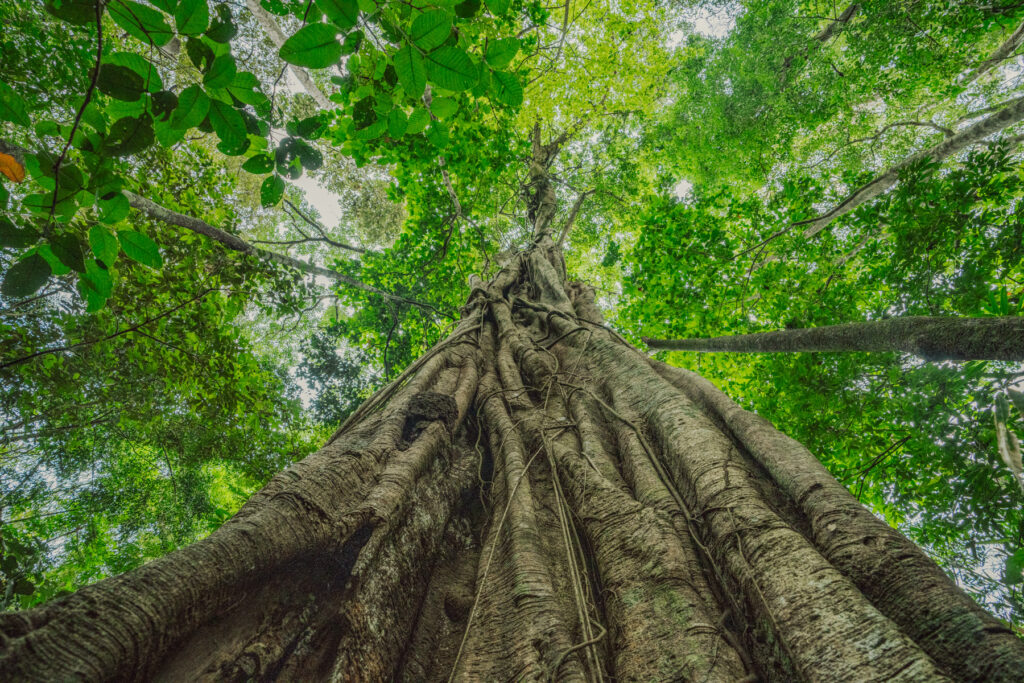“If we lose the forest, we will also lose our traditional beliefs. The existence of the forest and our beliefs are intertwined; the forest’s presence allows our beliefs to persist.” -Ly Sareoun, Indigenous Bunong Community Member

“My name is Ly Sareoun, and I live in Pu Reang Village, Sen Norom Commune, Ou Reang District, Mondulkiri Province. We don’t cut down the trees when we go into the forest due to our Bunong spiritual beliefs.
Cutting down trees like Chrey and Trach is believed to harm those who do so, as the spirits in the trees can cause health issues such as body aches and fever. To ask for forgiveness, those who cut down the trees must make an offering or give something back, like pork, chicken, or wine. That’s our tradition.
We pray before entering the forest to ask for spiritual protection against bad things and to ensure we encounter only good things. We seek protection from the god of the land to prevent us from being bitten by tigers, snakes, locusts, and so on.
If we don’t pray, some of us might face problems. For example, acting carelessly or thoughtlessly in the spiritual forest could lead to someone being haunted and injured. It could cost them their lives if we can’t find and help that person.

The forest is essential for the Bunong people. It provides plants, fruits, rattan, and many other resources, such as mushrooms to trade. We wouldn’t know how to make a living if we didn’t have the forest. For example, collecting grass and finding mushrooms without a forest is out of the question. All these resources would cease to exist if the forest were to disappear.
If we lose the forest, we will also lose our traditional beliefs. The existence of the forest and our beliefs are intertwined; the forest’s presence allows our beliefs to persist. Without the forest, it is impossible for our beliefs to carry on.
That’s the legacy our ancestors left for us. They didn’t leave us gold, diamonds, or money. Instead, they preserved the forest and trees for future generations, and that is our true wealth. The forest is the lifeline of the Bunong people.”
